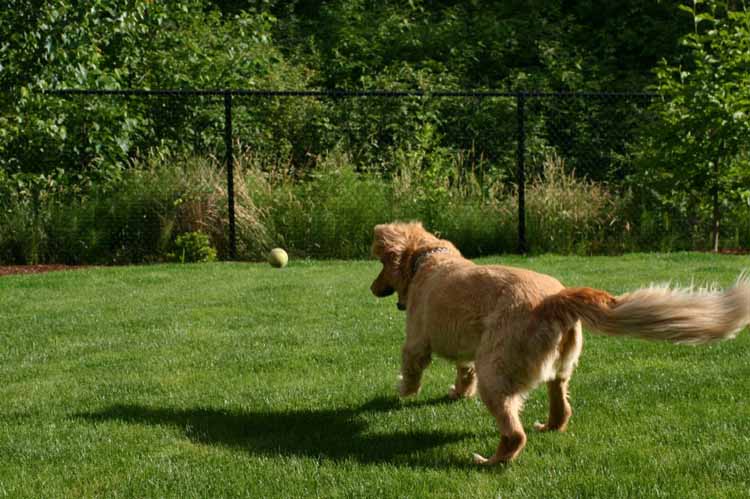Hidden Dangers in Your Backyard
In dog training, you learn about the dangers your dog may face when on a walk. It’s important to know how to hold onto your leash properly, approach corners cautiously and always keep an eye out for other dogs. Over time, keeping our canines safe outside of our home becomes instinctual.
Once the walk is over and we return home to let them run in the backyard, a common assumption is there is nothing to worry about and our backyard poses no danger to our pets. However, can you honestly say your backyard is safe? There are certain maintenance obligations and safety precautions you should follow before allowing your dog to run freely behind the house.
Gaps in the Fence
Before letting your dog into your backyard, make sure you go through every corner to check it is secure. There are several reasons why your dog might escape from the backyard. You must take precautionary steps in order to avoid this.
The first step is to check for gaps in the fencing of the perimeter. Depending on the breed of dog you have, you may want to dig at least six inches below the fencing and install a wire mesh under it to prevent tunneling. Padlocks are always the best choice for gates, as latches can be loosened by the wind or a strong dog.
Predators
Due to the fact toy breeds are less costly, easier to maintain and the better choice for kids and the elderly, their popularity has soared. However, allowing them to run unsupervised in the backyard is a very dangerous habit, especially if you live in rural areas. One of the quickest predators that are often overlooked is birds of prey.
So if you’ve noticed eagles, hawks or owls in your area, never leave your dog unattended or allow him to get too far away from you. Other predators that may get into your backyard include, but aren’t limited to, bob cats, cougars, raccoons and snakes.
Toxins
One of the most important dog obedience cues you should teach your dog is the “leave it” cue. When setting up a safe backyard for your canine, you have to be able to stop him from getting into trouble with plants or other animals that could be dangerous. You will need to be as proactive as possible and keep an eye out for certain plants and animals to manage the environment.
There are a variety of toxins created by animals, such as spiders, insects and toads. Fertilizers, certain algae, pesticides, plants and pool cleaners could potentially poison your dog as well. Certain plants like grape vines, azaleas, castor beans, sago palms, kalanchoe and traps that contain metaldehyde also pose a threat.
Climate
Hot summers can cause your dog to suffer heat stroke. There are particular breeds that are especially vulnerable to heat stroke so make sure you’re aware of your dog’s heat tolerance. To avoid this, you should have a nice shady area in the yard for your dog to rest beneath when the temperature rises.
A good way to provide shade is to plant trees, build a doghouse or consider investing in a covered porch. Always keep fresh cool water available for your dog and make sure you secure it so it’s not easily knocked over.
Not all breeds are able to tolerate being left outside during the cold either. This is true for more of the companion dogs and dogs with short coats that are bred to live in warmer climates. In this case, a doghouse that contains blankets or a dog bed is recommended to keep your pet warm.
Whether you’re on a walk or in your backyard, stay proactive in keeping your dog safe, healthy and happy. Prevention is key so always be cautious and manage your pet’s environment.
You may also like: 5 Common Household Dangers for Pets





